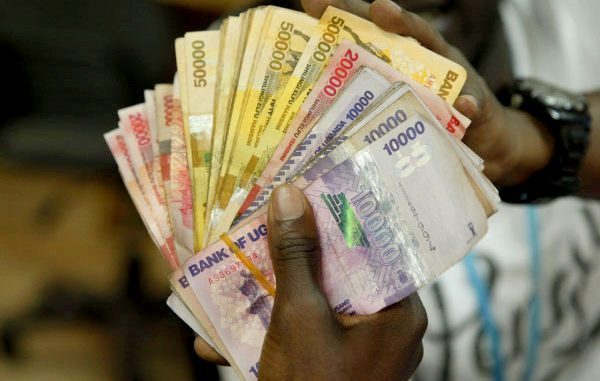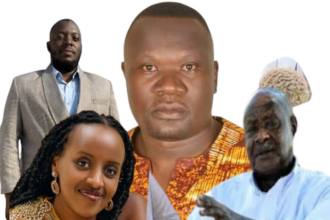Yesterday, during a meeting at Kololo Independence Grounds, President Yoweri Kaguta Museveni warned politicians especially those from the ruling party, NRM against using money in politics, saying that such a move was unnecessary and counterproductive.
He cautioned them, that money politics is very expensive and depletes resources without creating any significant change to the population.
“As if you haven’t been following closely about political leadership. I don’t know why you use money in politics. That is a very big mistake. I would really advise you that this is wrong, counterproductive and unnecessary. Stop this bad politics. If they listen and elect you, it will be good. If they don’t want to, you do other things and remain stable in your life. They will come back to you if you convey the message of the NRM. But it’s not good and it’s a very big mistake to use personal money in politics,” he advised them.
However, many reports and surveys have shown clearly how money politics a game played in Uganda by both the ruling regime and the opposition has damaged the roads to Uganda’s democracy and development.
In the will of democracy, research and journals on Uganda’s political landscape have revealed money politics has played more harm and no good starting from election financing. In Uganda during election campaigns money speaks more than the candidates and voters listen and understand money more than what their candidates can do.
Money plays a central role in financing political campaigns in Uganda. Candidates need substantial resources to run effective campaigns, including funding for rallies, advertisements, and campaign materials. Wealthy individuals, business interests, and political parties often provide financial support to candidates. This has created an uneven playing field, as candidates with access to greater financial resources have a distinct advantage, a reason why Uganda’s current political class is none other than business people who joined politics not to work for people but to make money and get rich.
Vote Buying and Patronage are among the evil twins birthed by money in politics, Money politics in Uganda has often led to the practice of vote buying, where candidates distribute cash, gifts, or favours to voters in exchange for their support. This practice has undermined the integrity of elections and distorted the will of the voters since the majority of individuals have been influenced by immediate financial incentives rather than making informed choices based on the candidates’ qualifications and policy positions.
Because of this, Uganda has now political novices in high places of authority who are not ready to learn but very greedy to know how to make deals and siphon money from the country’s resources because that is what they know best.
Corruption and accountability are also a pair of live examples of how money politics is maliciously pulling down Uganda from the route of the promised land. And it is because of money politics that a culture of corruption within the political system is incubating day and night right from the executive up to the village local council.
In Uganda candidates and elected officials have several times prioritised their financial backers over the interests of the general population, the best example is the Parliament on how it has conducted its businesses on several occasions not in the interest of Ugandans at large but in the interests of the few members. This has led to a lack of accountability, and because of this, politicians have less inclined zeal to address corruption and unethical behaviour within their own ranks.
The influence of money in politics in Uganda has contributed to political instability and conflicts, as competing factions seek control over state resources and financial power. This has been a recurring theme in Uganda’s history, with political and military conflicts often intertwined with economic and financial interests.
When it comes to development the influence of money politics in Uganda has had negative significant implications for the country’s development. While money politics can have both positive and negative effects on development, in Uganda’s case, its impact has often been more detrimental due to issues like corruption, unequal distribution of resources, and the diversion of public funds for political gain.
Currently, Uganda suffers from a problem of underinvestment in Social Services. The poor roads within the Kampala and poor state of health facilities are not abrupt problems that can not be solved but it’s because of money politics.
Funds that could be directed toward critical social services, such as education, healthcare, and infrastructure have always been diverted for political purposes or siphoned off through corrupt practices. There are many cases of such which have been unveiled by the Committee on Commissions, Statutory Authorities and State Enterprises (COSASE). This underinvestment has hindered human development and economic growth.
Money Politics in Uganda has also birthed another foul called resource capture and conflict where a few groups of people have decisively personalized the country’s resources and they have claimed that such and such resources belong to them.
Resource capture by powerful individuals and groups in Uganda has led to conflicts over access to land, minerals, and other valuable assets. These conflicts have on several occasions disrupted efforts of development and stability in affected regions. The best example of this is the Standard Gauge Railway, where some individual politicians went through corrupt means and bought land that SGR must pass to with evil desires of hiking compensation fees to persons affected by the projects for their personal gains.
Also, it’s from the background of money politics that currently in Uganda Civil Societies that act as checkers on government institutions’ financial management integrity are now being crowded out!
Money politics has weakened civil society organizations and advocacy groups that play a crucial role in holding the government accountable and promoting development-oriented policies. It’s now very difficult for these organizations to compete with the financial power of wealthy political donors.
In Uganda currently, development projects and policies are influenced by political considerations rather than genuine development needs. And this is because of money politics. Politicians nowadays prioritize projects that are strategically beneficial for their political careers or that provide opportunities for personal enrichment.
Though there are many efforts on the table efforts to address several issues through Civil society organizations, international donors, and government reforms aim to promote transparency, accountability, and equitable resource allocation, addressing the influence of money in politics and its impact on development remains a complex and ongoing challenge for Uganda.
Do you have a story in your community or an opinion to share with us: Email us at Submit an Article









